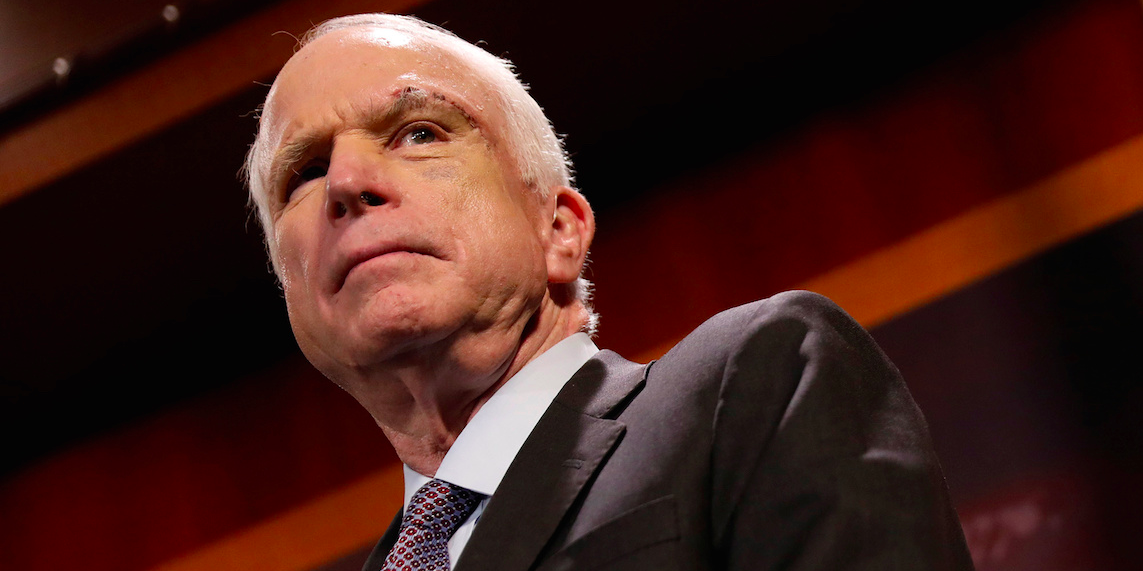- Sen. John McCain expressed satisfaction with the Senate’s use of regular order while trying to overhaul the tax code.
- The Republican tax plan is slated for a Senate vote in two weeks after lawmakers return from Thanksgiving break.
Sen. John McCain of Arizona on Friday applauded the Senate Finance Committee’s effort in shaping the chamber’s tax plan, giving Republicans a sigh of relief as the bill heads to a vote in the coming weeks.
“I applaud Chairman Hatch and the Senate Finance Committee in taking another step forward in providing much-needed tax relief for hardworking American families,” McCain said in a statement. “I am pleased that the Finance Committee has followed the regular order by holding numerous hearings and spending four days debating the bill and considering amendments in committee.”
“As chairman of the Senate Armed Services Committee, I value the process of moving important pieces of legislation through regular order,” he added. “I am hopeful that when we return from the Thanksgiving recess to consider tax reform on the Senate floor, we will see this process continue, with both sides of the aisle having sufficient opportunity to debate the merits of tax reform and offer amendments.”
One of McCain’s primary gripes during the effort to repeal and replace the Affordable Care Act was that his fellow Republicans were circumventing the regular order by which the Senate does its business. McCain ultimately voted against the “skinny repeal” effort in June, and his disapproval of a subsequent bill spearheaded by Sens. Lindsey Graham and Bill Cassidy helped derail that as well.
"The issue is too important, and too many lives are at risk, for us to leave the American people guessing from one election to the next whether and how they will acquire health insurance," McCain said of the Graham-Cassidy bill in September. "A bill of this impact requires a bipartisan approach."
But tax reform has been different for McCain, who expressed cautious optimism that the process would be better than with healthcare in a September statement on the initial framework of the plan.
"Throughout this process, senators will no doubt disagree, and we'll engage in vigorous argument over how best to bring sanity to our complicated tax system," McCain said. "But I'm confident that by moving through the normal legislative process, we can produce a bill that reforms our tax system, boosts our economy, and improves the lives of the people we serve."
McCain's support, however, may not be all Republicans need. Sen. Lisa Murkowski of Alaska, another key Republican swing vote, told Roll Call on Thursday that her vote for a tax plan including a repeal of the so-called individual mandate requiring people to have health insurance - as the latest Senate bill does - would have to be preceded by passage of the Alexander-Murray bill designed to stabilize the healthcare system.
"I think that there is a path and I think the path is a reasonable path," Murkowski said. "If the Congress is going to move forward with repeal of the individual mandate, we absolutely must have the Alexander-Murray piece that is passed into law."
Republican Sen. Ron Johnson of Wisconsin has already said he will not vote for the legislation in its current form. Republican leaders can lose only two members of their conference to pass the bill without Democratic support.
